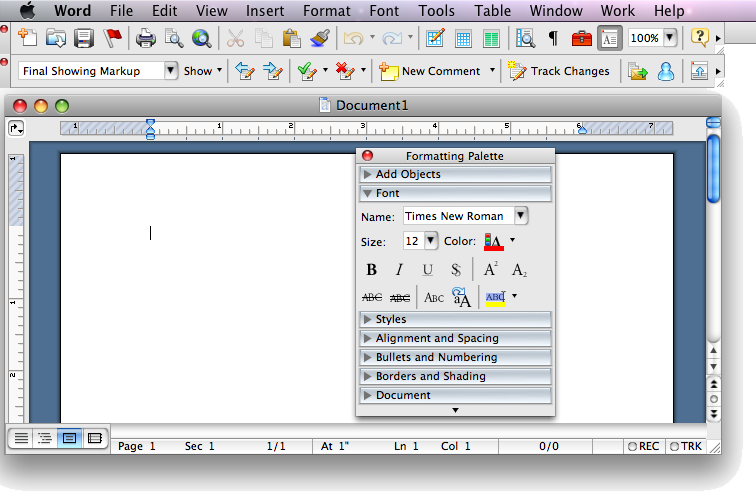Office Mac 2008 For Mac
Microsoft Office for Mac 2008 may be the best pick for business users, with major updates to Word, Excel, PowerPoint, and Entourage. After a series of delays, Microsoft plans to release Office for. New suitewide features Office 2008 for Mac comes in three different flavors. The standard product ($400; upgrade price $240) includes Word 2008, Excel 2008, PowerPoint 2008 and Entourage 2008.
Microsoft Sidesteps Office for Mac on Patch Tuesday
- By Marius Oiaga
- October 13th, 2009
Office 2004 for Mac Mainstream Support Extended to 2012
Well after the successor of Office 2008 for Mac drops
- By Marius Oiaga
- August 13th, 2009
Next Version of Office for Mac Drops in 2010
Download Open XML File Format Converter for Mac 1.1

From Microsoft
Office Live Workspace Beta Plays Nice with Safari 4
As of the release of Office 2008 for Mac SP2
Download Office 2008 for Mac Service Pack 2 (SP2)
Available July 20, 2009
Microsoft Offers Office 2008 for Mac Tips to Users
With the help of Peter Walsh
Microsoft Office For Mac
Office 2008 at 30% off with a New Mac
Buy a new Mac – get a discount on Office 2008 for Mac
Ms Office 2008 Mac
- By Marius Oiaga
- August 12th, 2008
Microsoft Slashes Office 2008 for Mac Prices
- By Marius Oiaga
- January 28th, 2008
Patching Up the Mac Office 2008 Installer
- By Marius Oiaga
- January 16th, 2008
Office 2008 for Mac Kicked Off at Macworld, Works Its Way to Global Availability
Office 2008 For Mac Support
- By Marius Oiaga
- January 15th, 2008
Office 2008 for Mac Is Here
- By Marius Oiaga
- December 27th, 2007
Gearing Up to Ship Office 2008 for Mac
- By Marius Oiaga
- October 8th, 2007
Office 2007 vs. Office 2008 - Packagings
- By Marius Oiaga
- September 25th, 2007
Microsoft Announces New Prices and Product Lineup for the Office System
Microsoft: No Office 2008 for Mac Until... 2008
But Open XML converters are available
Microsoft Bans Mac Users from Office 2007
Office converters for Mac delayed
Introduction
The subject of Microsoft Office for Mac has the potential to be a touchy one with Apple fans. There is a contingent of Mac users for whom Microsoft is the enemy, and any alternative to their products is the right choice. For many others though, especially those of us who live and work in cross-platform environments, the reality is that Microsoft's Office suite is the de facto standard, and life is a lot easier if everyone's files play nice.
Office For Mac 2008
Regardless of where you stand on the Office versus iWork question, there's no denying that Redmond has has churned out some pretty impressive and very Mac-like software. Office 98 was a fine package, and Internet Explorer 5 gave the Mac a better browser at the time than was available for Windows. Office 2001 introduced some new features, and then Office v.X brought the productivity suite to the shiny happy land of OS X. Bugs were ironed out for Office 2004, and that's where we've been ever since.
Office 2004 wasn't bad per se, but the switch to Intel has been painful for Office users. The applications were not universal binaries, which meant they had to run in under emulation in Rosetta. All that has changed, however, with the release of Microsoft Office for Mac 2008.
The MBU has been hard at work on the first new Office for Mac release in four years, and one that's been designed to take on Apple's iWork apps. Although the programs are still Carbon, rather than Cocoa, they now combine the look-and-feel of OS X 10.5 with some of the innovations Microsoft introduced in Office 2007, like the ribbon.
In the following review, I'm going to take a brief look at the Office 2008 versions of Word, Excel, PowerPoint, and Entourage to give you an idea of how the MBU has spent the past few years.
Installation
Unlike past versions of Office, where installing was almost as simple as dragging and dropping the folder into Applications, Office 2008 has an actual installer. Once the applications are installed on your hard drive, the installer then searches for previous versions and handily removes them for you. Any existing Office identities (i.e., your settings and e-mail) will then be migrated, but the existing data is not deleted. So if you decide you don't like the future, then you can revert back to living in 2004.
No more living in the past
